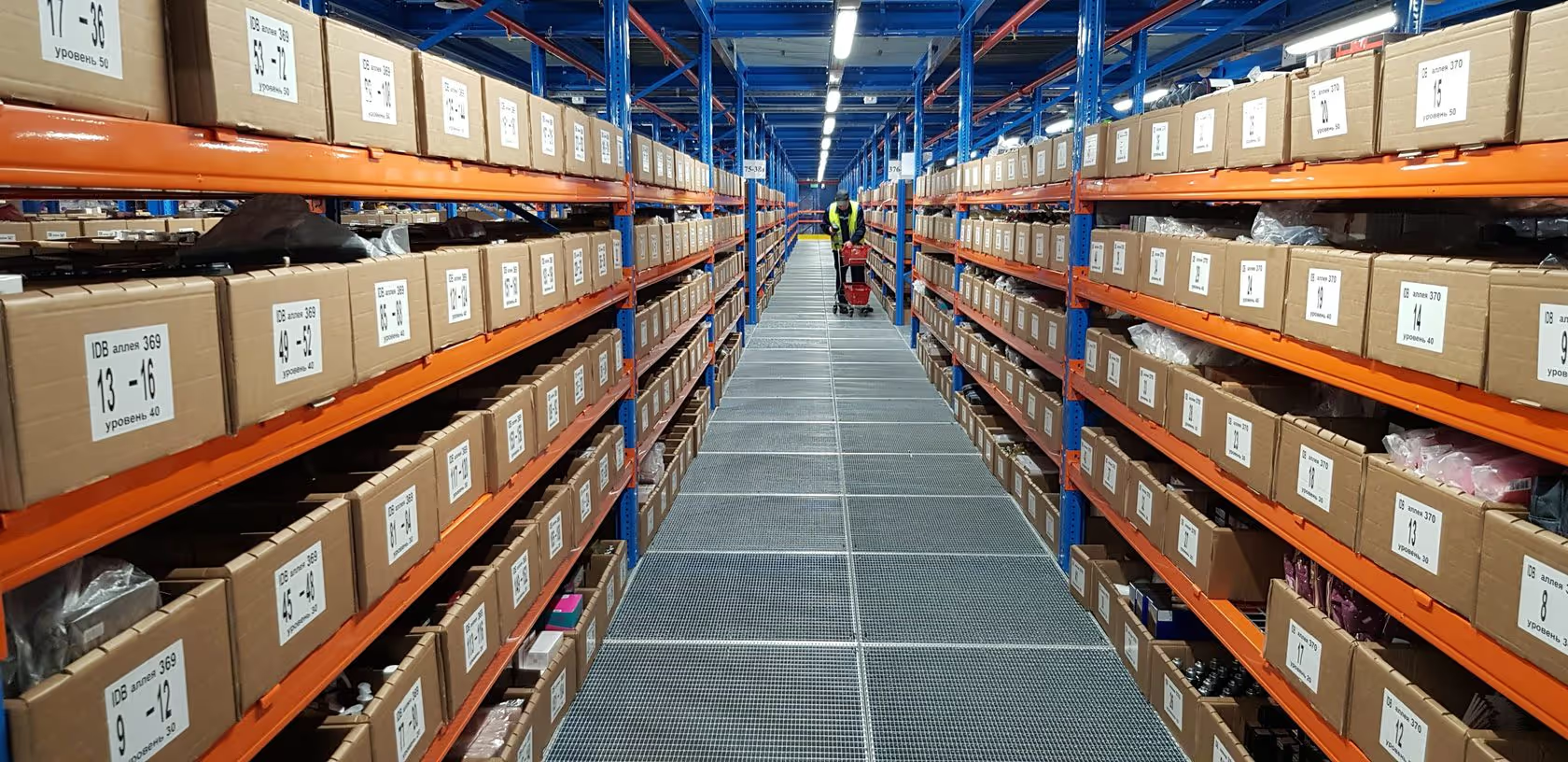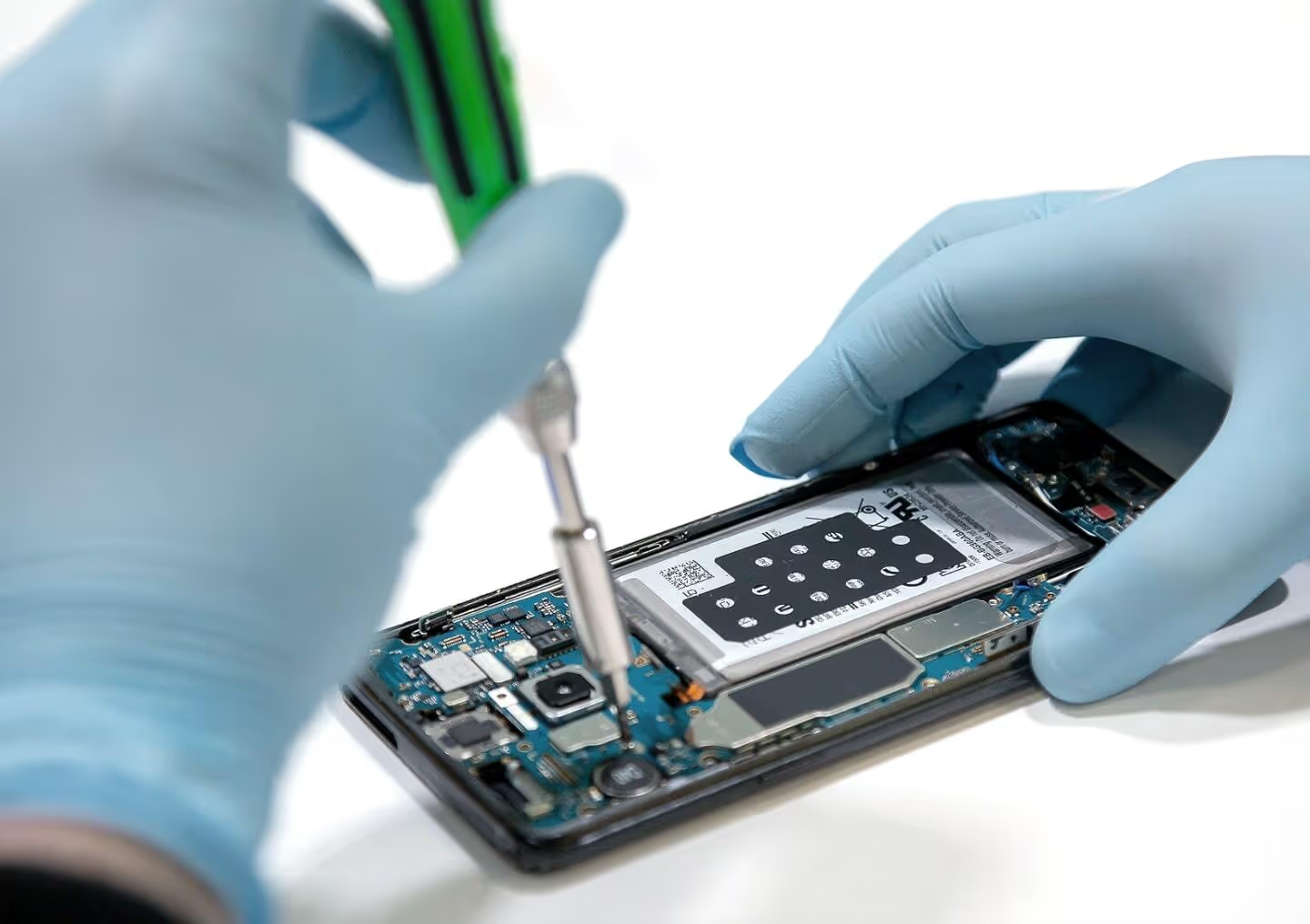Client
Russian Association of Electrical Engineering Companies (abbreviated. RAEC) is an association of 14 major distributors of electrical products: Elevel, Elcom-Electro, Electron, AVS-Electro, etc.
RAEC members work with 30 suppliers: Schneider Electric, Gauss, Philips, ERA, etc. A total of 2 million titles are sold, which are constantly updated and supplemented. Sales in 2021 amounted to 91 billion rubles.
Problem: no manager can memorize 2 million components to advise RAEC clients
Let's say a customer wants to buy a batch of Philips 60W bulbs for the E27 base. The distributor may not have them for many reasons:
- An order for 1000 bulbs, but only 500 in stock;
- Delivery will be in a month, but we need it now;
- The distributor has stopped selling Philips products;
- The manufacturer has transferred the color temperature coefficient of the bulb to the “warm” range, and the customer needs the “cold” range;
- The model is outdated and discontinued;
- The price has increased and the budget is not enough;
- The company is switching to products from Russian manufacturers, and a replacement is needed.
In such cases, the distributor may offer the client an analogue from its own product range or from that of its RAEC partners. But to do this, a manager who communicates with a client must remember all suitable analogues, check their availability in warehouses and offer them to the client.
It's hard to find an analogue even for a simple query like the bulbs in the above example:
- open the “Lamps” category;
- choose “LED lamps” from 9 subcategories;
- from 15 second-level subcategories, choose “Standard LED lamp (A55, A60)”;
- from 30 options, choose the desired analogue.
At the time of launch (after three months of work), RAEC transferred 93,378 items to Pimcore — Lighting Engineering became the test category. During the first year, the entire range of 2 million items has already been transferred to Pimcore RAEC.

Customer requests can cover several parameters at once. For example, you need a protective shutdown device whose nominal current and voltage are rigidly fixed, the price range is set, and the shutdown current can be any. In this case, you need to put 50 pieces within a week.
In this case, the manager must be ideally versed in all models of each device and know by heart all 2 million components, while remembering their price and availability in stock by the company and its partners.
No one will remember that much. This is a problem for businesses.
- Communication with the client is delayed: the selection of analogues can take several days. During this time, some customers find another offer.
- The workload on managers with extensive experience is increasing, as only they can process complex requests. This makes it difficult to scale the business.
- The turnover of goods in stock is decreasing. The most popular products run out quickly, while others, on the contrary, run out.
- Synchronization between RAEC members is lost. For example, a manager knows that one component was out of stock 3 days ago. Most likely, he will not offer it to the client if the delivery was made on the day of the consultation.
- A client loses trust if they can't find an analogue for him: “they don't know what they're selling.”
To solve these problems, RAEC turned to kt.team.
Objective: to create a system for instant search for analogues of electronic components
The manager should receive a list of analogues of the electrical component that the client is looking for in a few seconds. It is unacceptable that the employee's experience and the complexity of the request prevent the client from receiving prompt and high-quality assistance.
The search system for analogues should take into account the technical characteristics of the component, its price, brand and manufacturer, availability in stock, delivery speed, as well as contracts concluded between RAEC members.
At the same time, the system must find both complete analogues of the component and partial ones. 2 bulbs with the same base and power are complete analogues, and when only the base is the same, they are already partial.
When new components appear, analogues should be calculated automatically, without the participation of IT specialists or company managers. Similarly, information on the availability of components in the warehouses of RAEC members should be automatically updated after they are delivered.
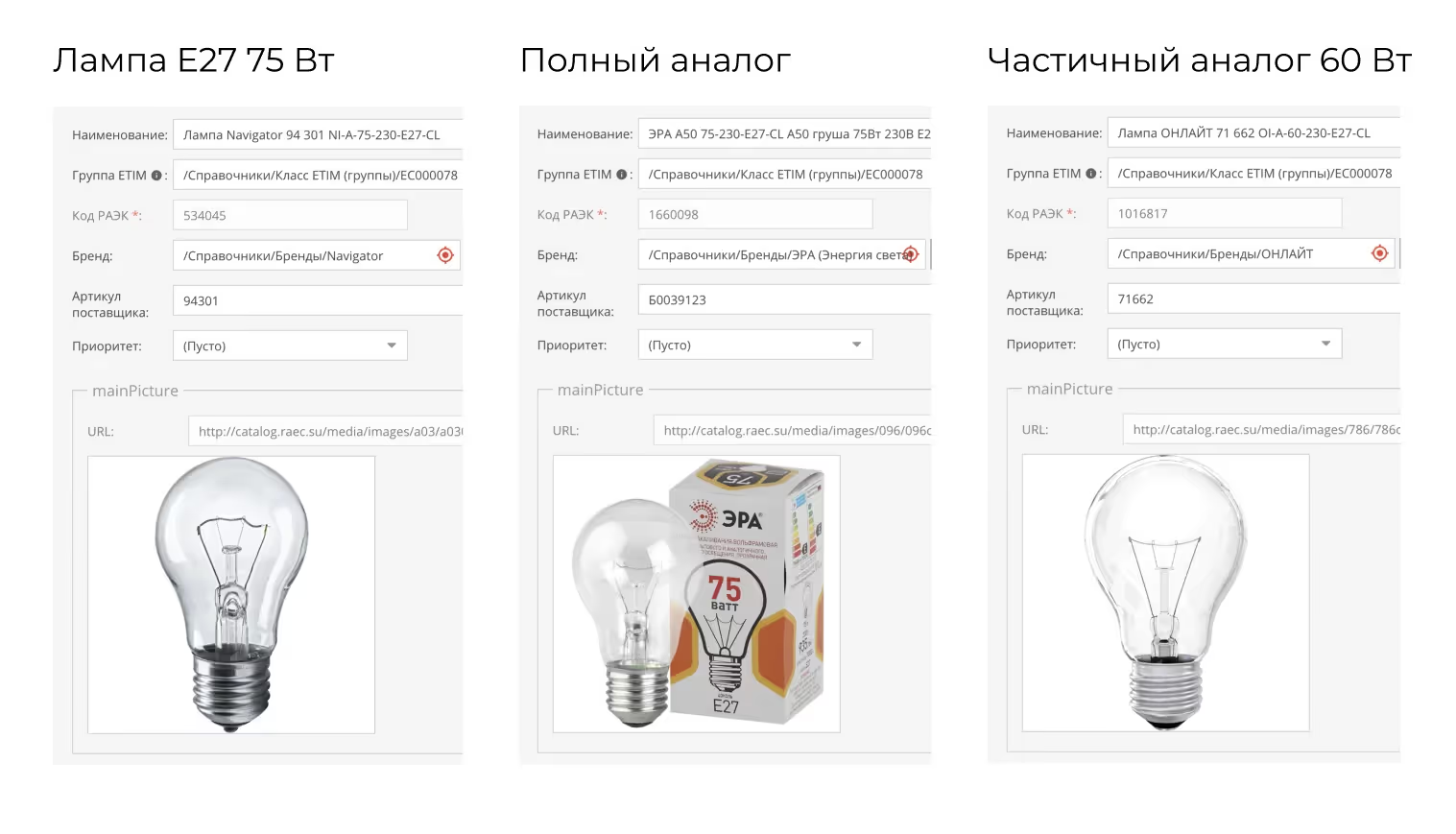
In 3 months, KT.team has developed a unified database of electrical components and a search system for analogues
RAEC members could record the same component in their systems in different ways, with different attributes and names. We have unified 2 million types of electrical components from the RAEC database. The new structure was programmed into Pimcore and linked via API to the RAEC database and the association's members' systems.
In addition, together with RAEC specialists, we developed rules for selecting analogues for each subcategory of components and built a search system based on them. The manager makes a request, and through the API, goods are loaded from the distributor systems to Pimcore. Then the system automatically categorizes components and selects analogues for them.
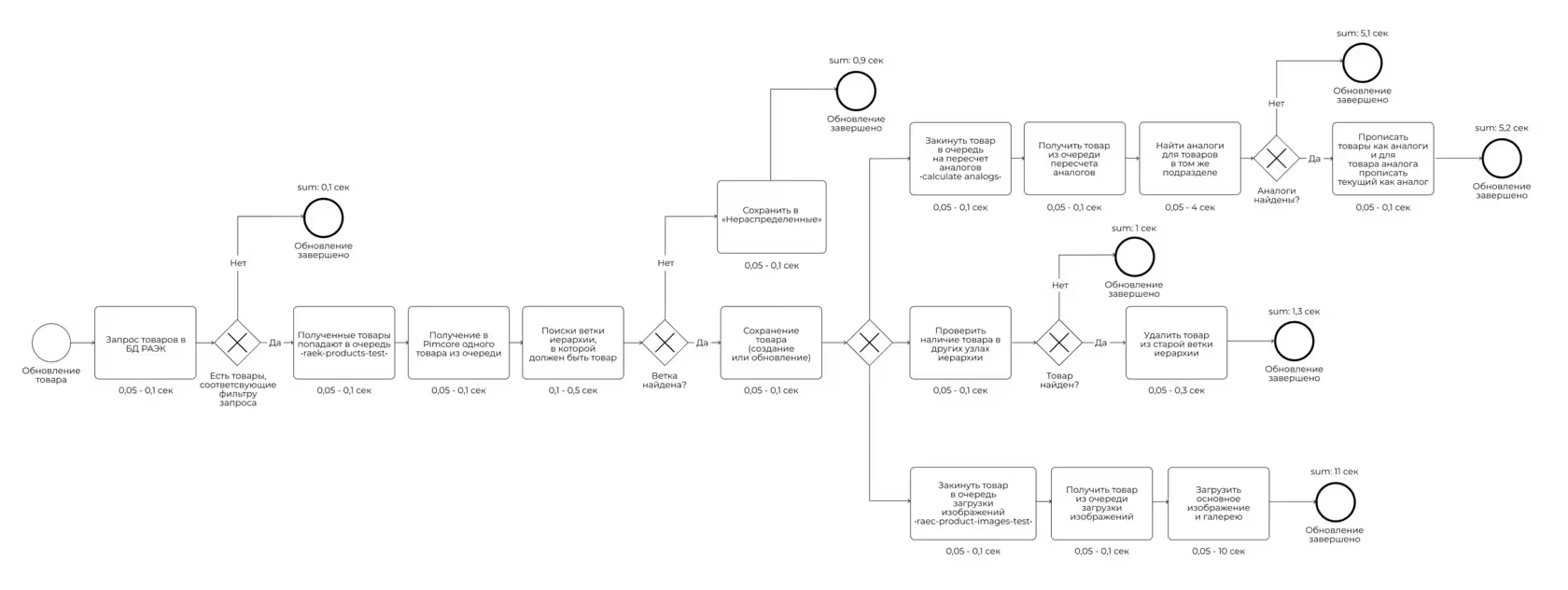
Result 1: the system finds analogues in 5 seconds
How it was: At the client's request, the manager opened the database and searched for analogues manually, based on his own knowledge of electrical components and the necessary attributes.
Up to 4 managers were looking for analogues in large orders. For the most difficult requests, we have already contacted electrical engineers. As a result, the search could take several days.
It became: The system finds analogues in 5 seconds. Now the manager can advise clients in real time by phone, in messengers or in person.
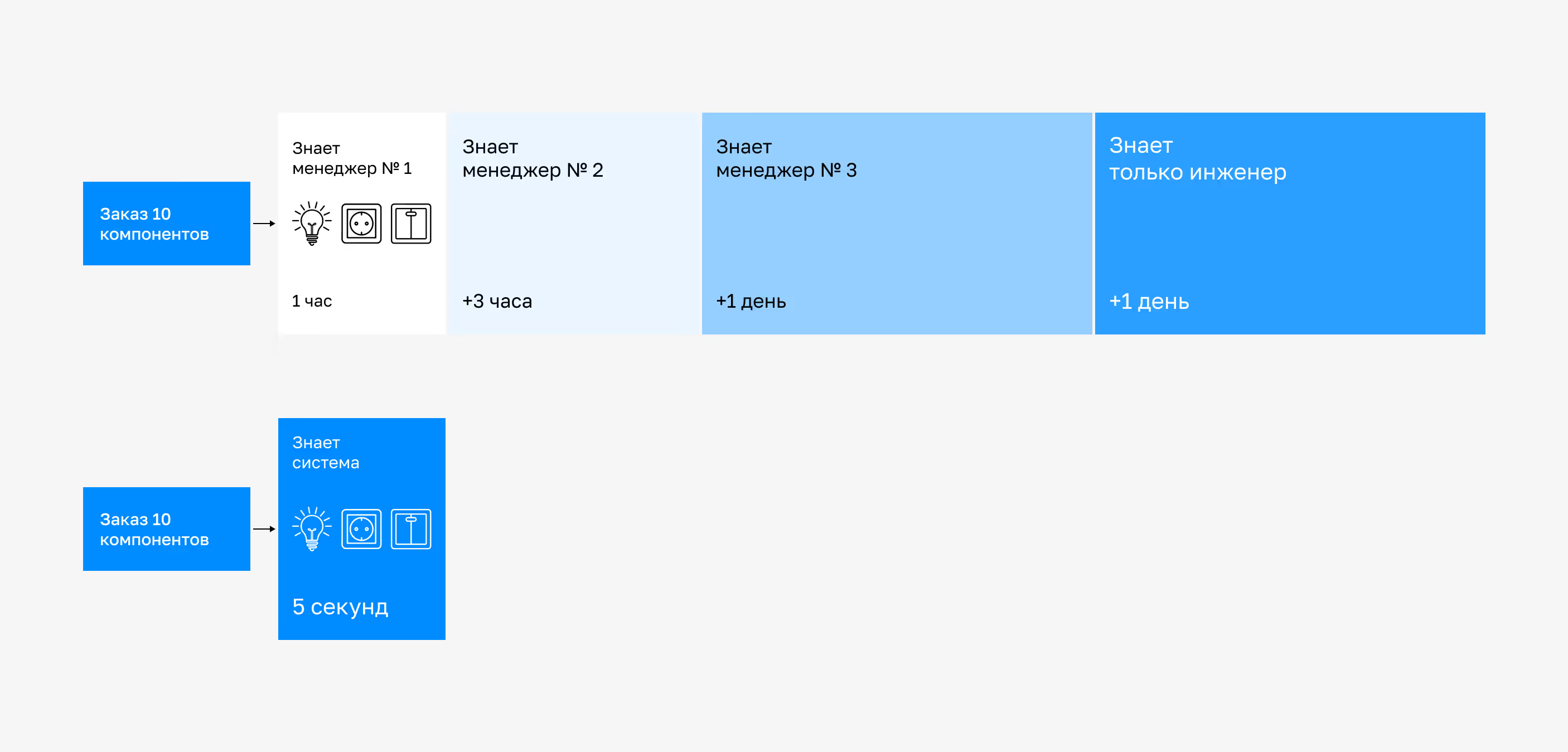
To make this possible, KT.team, together with RAEC experts, has formalized the rules for selecting analogues for one category — Lighting Engineering. The collection and digitization of the rules lasted 8 iterations, and now the system has detailed guides that take into account the experience of more than a dozen professional managers and engineers.
We have made this process universal: now RAEC members can independently add rules for selecting analogues for the remaining 13 categories of components. It is no longer necessary to involve IT companies for this, which will reduce the development budget several times.

Result 2: managers control the turnover of components in warehouses and take into account their margins
A manager can offer the client an analogue component that has been in stock for a long time. For example, a less popular brand. A manager can also primarily sell components with higher margins.
The easiest way to do this is when purchasing by tender. Usually, the requirements do not specify specific firms and models, but individual technical characteristics of the components. And with the help of the new system, a manager can select any offer within the stated budget.
Result 3: the database of components and analogues is updated automatically without the support of the IT department
Every year, the number of electrical components sold by RAEC members increases. For example, in July 2022, 3,500 titles from a new supplier, Hyperline, were added to the database.
Without automatic updates, the analogue search system will become obsolete in a couple of months, or each RAEC member will need to update the database manually.
KT.team has developed a system that is updated automatically when any changes are made to component information: adding new ones and deleting old ones, changing the characteristics, prices and inventory levels of components in stock.
RAEC managers update data wherever it is convenient for them, and the system synchronizes changed records in Pimcore. The database is updated every 8 hours. For changed components, a search for analogues is launched. Thus, the system always reflects up-to-date information on components in RAEC.
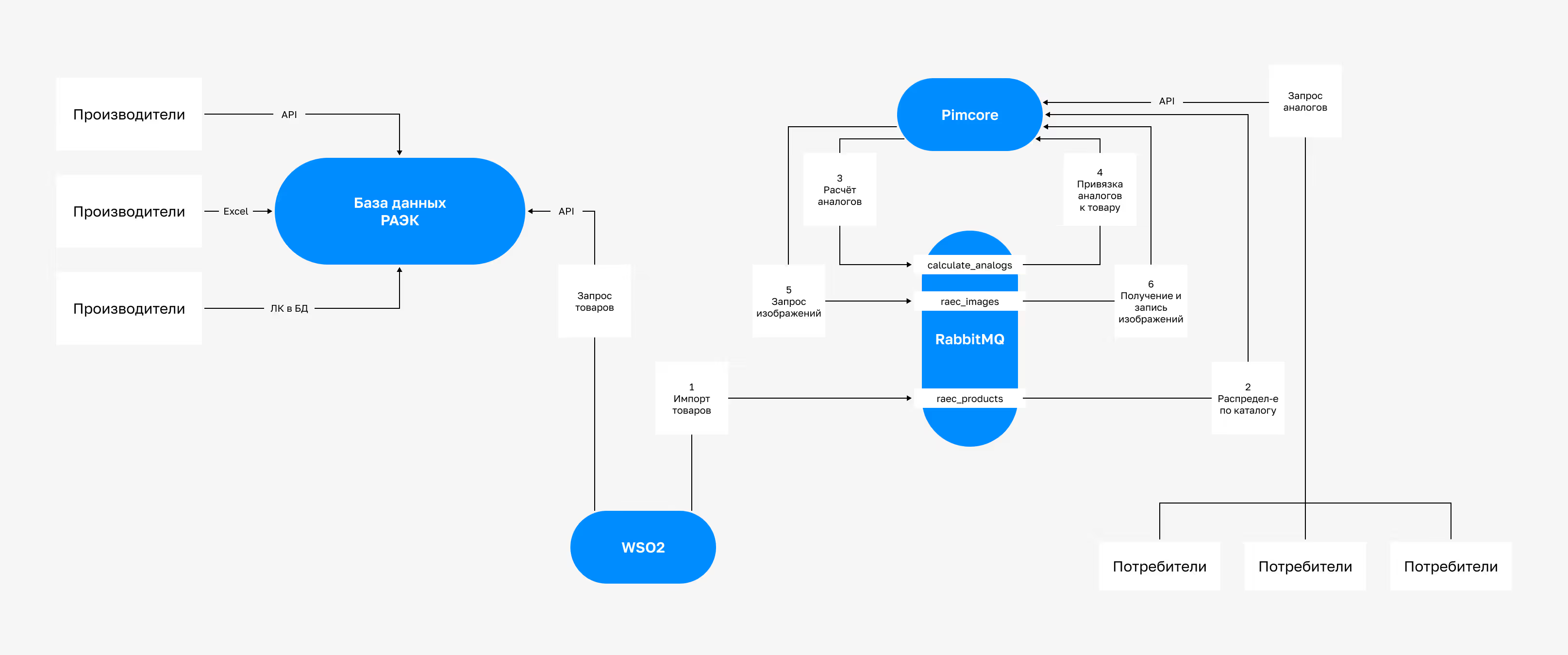
The result
- Any manager, regardless of experience, can find an analogue for any product in 5 seconds, not in 3 days, as it was before.
- The MVP system is implemented for 1 out of 13 categories. The client adds the remaining categories independently, using instructions and without involving IT contractors in resolving the issue. The development budget has been reduced several times.
- The analogue search system is synchronized with the component database and the analogues are recalculated automatically every 8 hours. Managers use the latest data to select products.
- The project was launched in 3 months.
- In 1 year, the entire range of 2 million items was transferred to Pimcore.



